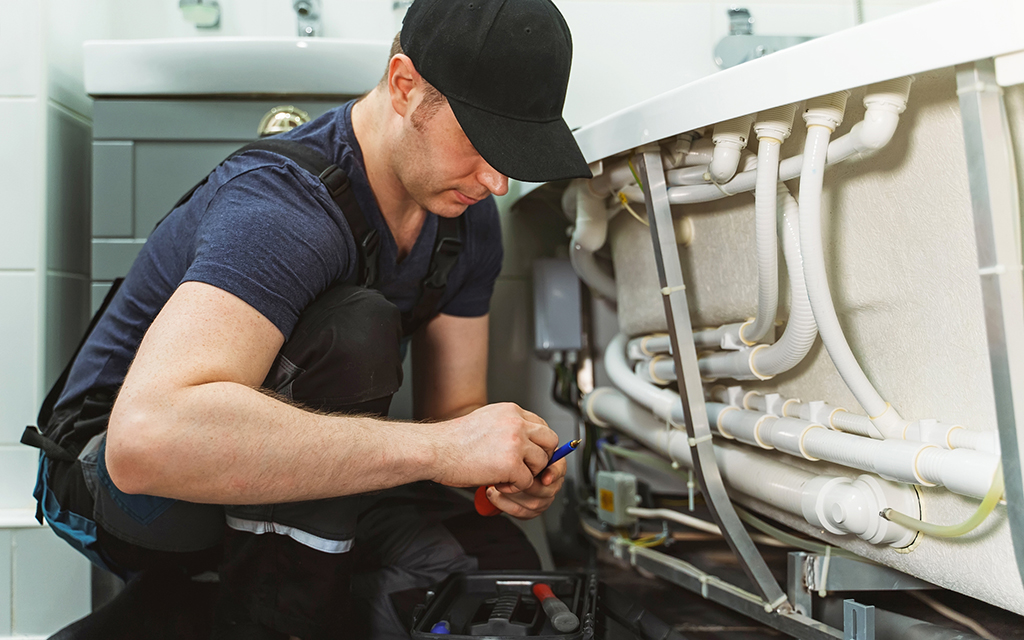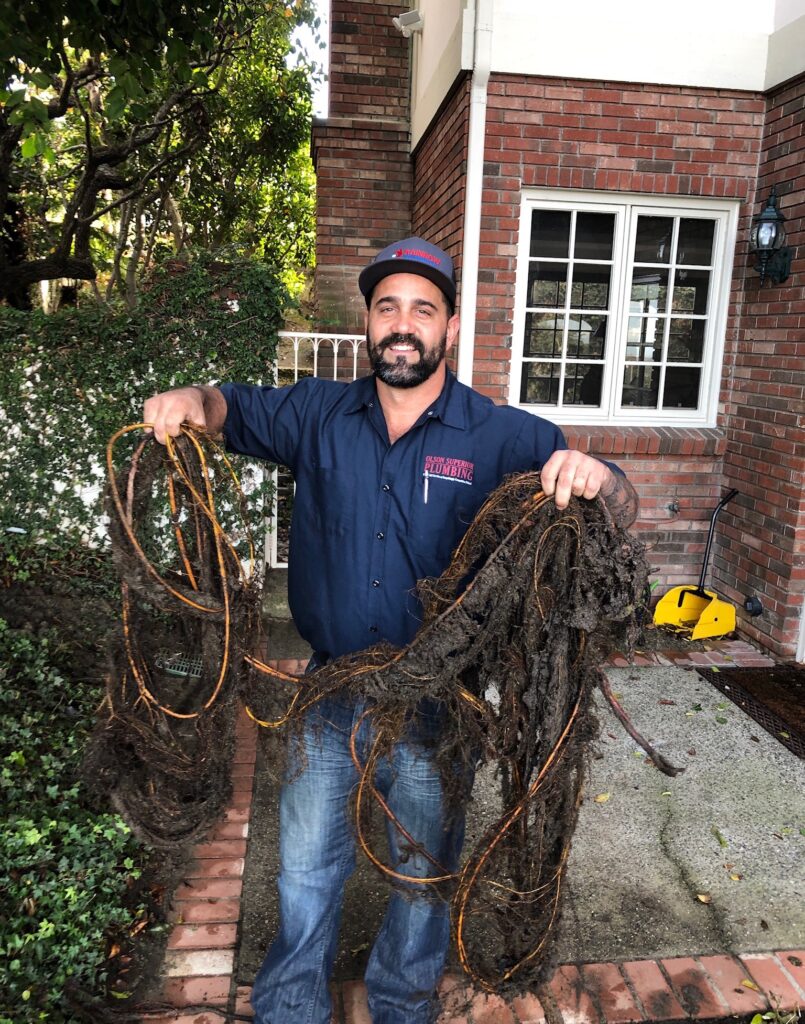The Function of Pipes in Water Management
As a home owner or entrepreneur, you might not provide much idea to the function of pipes in managing your water sources. However the truth is, the pipes, components, and systems hidden behind your walls play an important part in guaranteeing clean, reliable water gain access to and liable waste disposal. From supplying fresh water to your taps to facilitating the appropriate drain of secondhand water, pipes is the unhonored hero that maintains your daily procedures running efficiently. Dive deeper right into this necessary infrastructure, and you’ll reveal the ways it forms water monitoring methods in your neighborhood – and why it is entitled to more focus than it usually receives.
Trick Takeaways
- Plumbing systems are important for transporting tidy, risk-free water to homes and businesses, along with safely taking care of wastewater.
- Appropriate pipes design and maintenance can boost water conservation, lower water waste, and protect against costly leaks and damage.
- The selection of pipes materials can affect water quality and public health, with contemporary products like copper and PVC offering benefits over obsolete lead pipelines.
- Reliable drain systems and lasting water reuse innovations, such as greywater recycling and rainwater harvesting, can assist handle stormwater drainage and minimize the demand on community water materials.
- Regular assessments and upkeep of plumbing systems are important for determining and stopping leakages, maximizing water effectiveness, and protecting the setting.
Providing Clean Water to Homes and Services
Pipes systems are essential for providing clean, risk-free water to homes and organizations, guaranteeing their passengers have access to this essential resource. With a network of pipelines, faucets, and fixtures, plumbing brings freshwater in and removes wastewater out, preserving a constant flow that’s essential for life.
But it’s not practically the pipes – water filtering systems play a considerable function in detoxifying the water, eliminating impurities and impurities to supply the finest quality H2O.
Regular pipe maintenance is additionally crucial to maintaining your plumbing in top form. Obstructed or rusty pipelines can restrict water circulation and cause leakages, which not just waste precious resources however can also trigger expensive damages.
Safe Disposal of Wastewater

As soon as the water has actually been utilized in your home or business, the next essential action is the secure disposal of wastewater. Correct wastewater management assurances that utilized water is sensibly gotten rid of from your properties, protecting against potential wellness and environmental risks.
Plumbing systems play a considerable role in making certain wastewater is dealt with and gotten rid of securely. Your wastewater is finished a network of pipes to a metropolitan treatment center or an exclusive septic tank, where it undertakes extensive treatment to eliminate impurities. This process is vital for safeguarding public health and wellness and the setting, as poorly managed wastewater can spread diseases and contaminate regional waterways.
Rigorous health and wellness policies regulate the disposal of wastewater, needing it to meet details standards prior to being launched back right into the environment. Plumbing technicians make sure your wastewater system follows these guidelines, securing the wellness of your area and the surrounding environment.
Pipes’s Influence on Water Infrastructure
Together with ensuring appropriate wastewater disposal, pipes systems significantly impact the wider water facilities that offers your neighborhood. The materials made use of in your pipes, as an example, can impact the quality and flow of water throughout the system.
Older lead pipes, for instance, can seep harmful materials into the alcohol consumption water, posing wellness threats. Improving your pipes with corrosion-resistant products like copper or PVC aids keep water pureness.
Furthermore, the drainage systems attached to your plumbing play an essential role in taking care of stormwater overflow. When made and mounted appropriately, these systems effectively direct excess water away from homes and businesses, stopping floodings and protecting the integrity of the total framework.
On the other hand, improperly working drains can contribute to water build-up, leading to facilities damages and potential public health and wellness concerns.
Lasting Water Use With Pipes
Your pipes options can significantly affect lasting water usage within your home or service. Low-flow fixtures, for example, reduce unneeded water intake without compromising performance.
Likewise, integrating greywater systems that reuse wastewater for watering more improves your general water effectiveness.
Going an action additionally, rainwater harvesting systems accumulate and save precipitation for different non-potable applications, such as toilet flushing and landscape watering.
This decreases the demand on local water products and promotes self-sufficiency. Furthermore, these systems assist minimize stormwater runoff, stopping prospective flooding and erosion problems.
Pipes’s Function in Water Preservation
The plumbing system plays an important function in preserving water within your home or business. By purposefully incorporating water-efficient components and reusing systems, you can considerably lower your overall water consumption and reduce pressure on local water sources.
One key technique is rain harvesting. By diverting and saving rain that would or else escape, you can utilize this totally free, eco-friendly source for tasks like irrigation and bathroom flushing.
Greywater recycling is one more powerful tool, enabling you to recycle water from sinks, showers, and cleaning devices for landscape watering. These pipes upgrades not only save safe and clean water yet additionally decrease the need for energy-intensive water therapy.
Past components and recycling, correct pipes maintenance is vital. Dealing with leaks and upgrading to high-efficiency versions better boosts water cost savings.
The Relevance of Effective Plumbing Systems
Reliable plumbing systems are important for reliable water management.
They can help you save water and stop pricey leaks that lose priceless resources.

Water Conservation Techniques
Reliable plumbing systems play an essential function in water conservation, allowing you to reduce water usage and minimize your ecological impact.
By incorporating rain harvesting systems, you can capture and store precipitation for numerous non-potable usages, such as landscape irrigation and toilet flushing. This not just reduces the stress on local water supplies but likewise aids recharge regional groundwater sources.
Greywater recycling, one more important method, enables you to reuse water from sinks, showers, and washing devices for irrigation, substantially reducing freshwater intake.
Additionally, high-efficiency components like low-flow faucets, showerheads, and commodes can considerably reduce water usage in your home. Updating to these water-saving devices not just preserves resources but likewise lowers your energy bills.
Coupled with proper maintenance and timely leakage discovery, your pipes system becomes an effective tool in your water preservation initiatives. With these approaches in place, you can make a significant distinction in maintaining this priceless resource and safeguarding the environment for future generations.
Avoiding Pricey Leaks
Routinely checking your pipes system is crucial to stop pricey water leaks that can squander resources and cause considerable residential or commercial property damages.
Routine leak detection and pipe upkeep are very important for keeping the effectiveness of your plumbing system. Even the tiniest leakages can build up in time, leading to higher water bills and possible structural damage to your home.
By executing routine evaluations and addressing any issues promptly, you can catch issues early prior to they intensify. This includes monitoring for leaking taps, running commodes, and any visible indications of moisture or water damage.
Using sophisticated leakage discovery techniques, such as infrared electronic cameras or acoustic sensing units, can assist determine covert leakages within your walls or structure that might otherwise go undetected.
Investing in normal plumbing upkeep, such as replacing aging pipes or securing vulnerable joints, can aid prevent future leakages and ensure your pipes system runs at peak efficiency.
Frequently Asked Concerns
Just How Can Pipes Prevent Water Contamination in Houses?
You can prevent water contamination in your house by concentrating on backflow avoidance and making use of correct pipe products. https://balhamplumbing.co.uk
Backflow avoidance tools stop infected water from receding right into your tidy water system.
In addition, making use of premium pipes made from materials like copper or PEX can assure your pipes system doesn’t seep hazardous chemicals or minerals right into your drinking water.

What Are the Usual Pipes Issues That Affect Water System?
Dripping taps and pipeline corrosion are 2 common plumbing issues that can affect your supply of water.
Leaks drainage and can lead to mold growth, while deterioration in pipes can contaminate your alcohol consumption water with damaging minerals.
To keep a reputable, tidy water source, it’s vital to attend to these problems quickly.
Regularly evaluating your plumbing system and dealing with any type of issues promptly can help guarantee your home has a safe, effective supply of water.
Exactly How Does Pipes Design Influence Water Usage in Buildings?
Your plumbing layout considerably impacts water usage in buildings.
By thoroughly selecting water-efficient components and incorporating wise plumbing techniques, you can lower water consumption and reduced utility expenses.
As an example, selecting low-flow taps, showerheads, and toilets can lessen water use without sacrificing performance.
Furthermore, optimizing pipe layout and making use of water-saving innovations like greywater systems can additionally enhance your building’s water efficiency.
Your plumbing options play a vital role in attaining sustainable water administration and promoting environmental responsibility.
What Are the Benefits of Normal Pipes Maintenance?
Routine pipes upkeep is necessary for maintaining your home or service running smoothly.
By organizing seasonal examinations, you can catch minor problems prior to they come to be expensive emergency situation repairs. This not just saves you cash in the future, however it likewise aids to assure the reliable use of water resources.
Appropriately kept plumbing systems can lower water waste and maximize the life expectancy of your fixtures, benefiting both your budget and the environment.
Exactly How Can Pipes Add To Sustainable Water Administration?
Your pipes system can play a necessary function in lasting water administration.
By integrating rain harvesting and greywater recycling, you can lower your reliance on community water resources and contribute to an extra sustainable water future.
Rain harvesting accumulates and stores precipitation for non-potable usages, while greywater reusing repurposes water from sinks, showers, and cleaning machines for landscape watering.
These plumbing innovations allow you to conserve priceless water resources and reduce your ecological effect.
Final thought
Pipes is the foundation of effective water monitoring. It guarantees tidy water reaches your home or service and securely takes care of wastewater.
Well-maintained pipes sustains lasting water practices, saving sources and safeguarding public health and wellness.
Your plumbing system plays a crucial role in water framework, so it is essential to keep it in leading shape via normal maintenance.